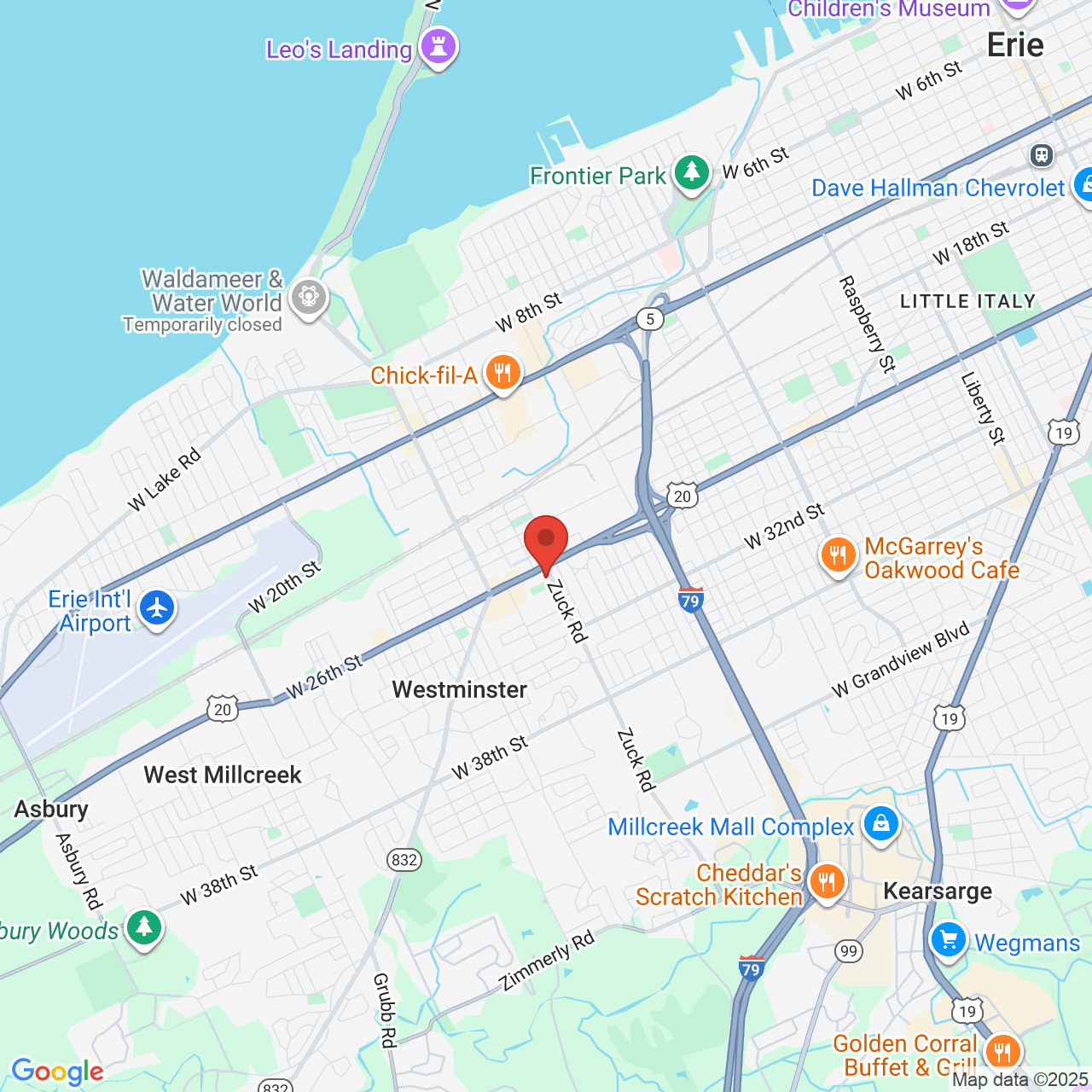
Myopia
Understanding Myopia
Myopia is a condition in which your eyes focus light in front of the retina, instead of directly onto it. This refractive error is usually due to the shape of the lens or cornea. This prevents light from refracting properly, resulting in blurry vision and the inability to see distant objects clearly. Patients can be diagnosed with either low, moderate, or high myopia.
People with high myopia may have a higher risk of retinal detachment. Additionally, people with high myopia may have a higher risk of developing cataracts and glaucoma. If you have myopia, regular exams with your ophthalmologist are important. They can help us preserve your vision and treat additional problems that may arise, like cataracts.
Myopia is a common condition that affects an estimated 25% of people in the United States. -According to the American Academy of Ophthalmology®
The Symptoms of Myopia
Squinting
Eye Strain or Fatigue
Headaches
Difficulty Seeing Objects That Are Far Away
Holding Objects or Books Close to the Face
Diagnosing Myopia
Visual Acuity Test
During this test, you will be asked to read letters on a chart placed on the other side of the room. This helps our doctors determine the distances at which you can see most clearly.
Refraction Evaluation
During this test, you will be asked to look through different lenses on a phoropter, an instrument that measures the amount of refractive error you have and establishes which prescription is best for correcting your vision.
Treatment Options for Myopia

Prescription Glasses and Contact Lenses
The most cost-effective and conservative method for treating myopia is corrective eyewear, such as glasses or contact lenses. This may be all a patient needs to manage their nearsightedness. If you prefer to see clearly without glasses, we also have surgical treatments available.
LASIK
LASIK can treat myopia, hyperopia, and astigmatism. Our doctors in Erie, PA, can create a small flap in the cornea and reshape the underlying tissue so light is properly reflected onto the retina, eliminating or reducing the need for glasses or contact lenses.
Photorefractive Keratectomy (PRK)
PRK is an alternative to LASIK that treats nearsightedness, farsightedness, and astigmatism. It is usually more suitable for patients with thin corneas. Instead of creating a flap, the outermost layer of cells on the cornea is removed so your surgeon can access and reshape the deeper corneal tissue. After surgery, a protective lens covers your eye as it heals.
The treatment that is most appropriate for you will depend on your health, budget, and lifestyle. You can explore your options during a consultation with one of our doctors in Erie, PA.
"Great place to go!"
Great place to go! The staff was very nice and helpful. Decided to get lasik and got a recommendation from a friend and would never regret doing it... They used the newest high tech equipment and it was impressive. Thank you again!
View on GoogleAn amazing team, communication is first rate, care was first rate and the doctor was very thorough great communications skills for sure! Enough of the chain places ....... head here
View on Google



